
Beer production in Ukraine in January-July 2024 reached 84.4 million dal, up 6.9% compared to the same period in 2023, according to the website of the industry organization of brewers Ukrpyvo.
“The expert estimate of beer production in Ukraine for 7 months of 2024 is 84.4 million dal, or 106.9% compared to the same period in 2023. At the same time, this figure is only 80.9% of the production volume for 7 months of 2021,” the statement said.
Beer production in Ukraine in 2022 decreased by 27.9% compared to 2021 – to 122.8 million dal.
By the end of 2022, the brewing industry had partially recovered from a 50% drop in production in the first quarter due to the Russian invasion and the shutdown of some breweries.
Thus, in the first four months of the year, the decline amounted to 42.8% compared to the same period in 2021, January-May – 36.4%, January-June – 32%, January-July and January-August – 31.6% each, January-September – 30.5%, January-October – 28.6%, January-November – 28.1%, and 27.9% in the previous year.
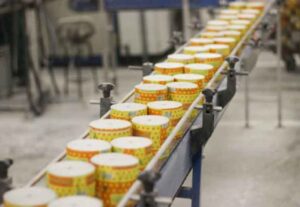
Kokhavyn paper mill (KBF, Lviv region), which produces sanitary and hygienic paper products, in January-July 2024 increased its output by 61.1% against the same period of 2023 – up to UAH 1 billion 069 million, according to the statistics of the association “UkrPapir”.
As reported, at the end of the half-year the factory’s production growth amounted to 54.5% to the same period last year.
According to the statistical data of the association provided to Interfax-Ukraine, in physical terms, the production of paper-base for sanitary-hygienic products at the factory for seven months increased by 33.6% – up to 32.5 thousand tons.
The output of toilet paper in rolls increased by 1.5% to 80.1 million pieces. KPF confidently ranks second in its output after Kyiv PPC.
As it was reported, in October 2023 Kokhava BF commissioned a paper machine for production of cellulose base paper (earlier they produced only on recovered paper basis). KBF attracted EUR13.8 mln loan from EBRD to organize such production in 2021.
Kokhavinskaya PF, which has been operating since 1939, produces backing paper for sanitary goods, as well as toilet paper and paper towels. Prior to the commissioning of the new machine, it had two PPMs with a total capacity of 40,000 tons of backing paper per year.
In 2023, the mill increased its output by 18% compared to 2022 – up to UAH 1 bln 151.2 mln, net profit increased 2.7 times – up to UAH 137 mln.
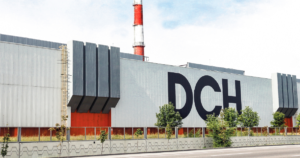
Dnipro Metallurgical Plant (DMZ), a part of DCH Steel of businessman Aleksandr Yaroslavsky’s DCH Group, cut rolled steel production by 51.8% year-on-year to 33.8 thousand tons in January-July this year.
According to information in the corporate newspaper DCH Steel on Thursday, in July, the company did not produce rolled metal, but rolling shops shipped to customers more than 1.5 thousand tons of rolled products produced in previous periods. In July 2023, the company produced 13.3 thousand tons of rolled metal products.
At the same time, coke production in the first seven months of 2024 decreased by 1.6% to 169.6 thousand tons. In July 2024, coke production increased by 7.2% month-on-month to 26.1 thousand tons. In July 2023, the company produced 30.4 thousand tons of coke.
“Rolling shop No. 1 is currently being prepared for launch, where R-34 and R-43 rails will be produced during the production campaign,” the company said in a statement.
As reported, in 2023, DMZ increased its rolled metal output by 86.2% compared to 2022, up to 105.6 thousand tons, and coke output by 38.5%, up to 292.7 thousand tons.
In 2022, the plant reduced rolled steel production by 74.2% compared to 2021, to 58.4 thousand tons, and coke production by 56.3%, to 211.3 thousand tons.
DMZ specializes in the production of steel, pig iron, rolled products and products made from them.
On March 1, 2018, DCH Group signed an agreement to buy Dnipro Metallurgical Plant from Evraz.
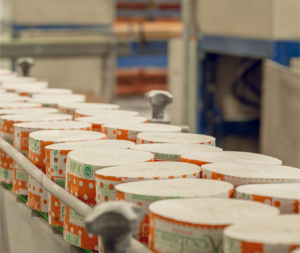
In January-June 2024, Kokhava Paper Mill (KBF, Lviv region), which produces sanitary paper products, increased its production by 54.5% year-on-year to UAH 869.64 million, according to statistics from UkrPapir Association.
In the first five months of this year, the mill’s production growth rate was 45.1% compared to the same period last year.
According to UkrPapir’s statistics provided to Interfax-Ukraine, the company’s production of the base paper for sanitary products increased by 30.7% to 27.2 thousand tons.
Production of toilet paper in rolls increased by 1.4% to 68 million units. KBF is confidently ranked second in terms of its output after Kyiv pulp and paper mill.
As reported, in October 2023, Kokhava Pulp and Paper Mill put into operation a paper machine for the production of cellulose base paper (previously, it produced products only on a waste paper basis). To organize such production in 2021, the CF attracted a EUR 13.8 million loan from the EBRD.
Operating since 1939, the Kokhavynsk Pulp and Paper Mill produces base paper for sanitary and hygiene products, as well as toilet paper and paper towels. Before the new machine was put into operation, the mill had two paper machines with a total capacity of 40 thousand tons of base paper per year.
In 2023, the plant increased its production by 18% compared to 2022, to UAH 1 billion 151.2 million, and its net profit increased 2.7 times to UAH 137 million.
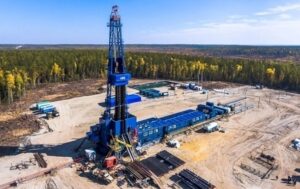
In January-June 2024, Ukrgasvydobuvannya JSC increased natural gas production (commercial) by 8.8% compared to the same period in 2023 – up to 6.913 billion cubic meters, the company’s press service said on Wednesday.
According to the company, 165.864 thousand meters were drilled during the reporting period, which is 9.117 thousand meters more than last year’s penetration rate for the first half of 2023.
“Ukrgasvydobuvannya put 41 new wells into operation, 14 of which are high flow rate wells. For example, the daily flow rate of one of the latter exceeds 400 thousand cubic meters. These are very good results that we have achieved thanks to the integrated work of the team,” said the Head of the company Serhiy Lagno.
According to him, UGV also demonstrates good gas production performance at old modernized wells due to the introduction of new technologies.
As reported, Ukrgasvydobuvannya and Ukrnafta produced 7.3 bcm of commercial gas in January-June 2024, which is 8% more than in the same period last year.
In 2022, UGV produced 12.5 billion cubic meters of natural gas (commercial), which is 3% less than in 2021. In 2023, the company produced 13.224 bcm of commercial gas, which is 0.679 bcm more than in 2022.
NJSC Naftogaz of Ukraine owns 100% of Ukrgasvydobuvannya shares.
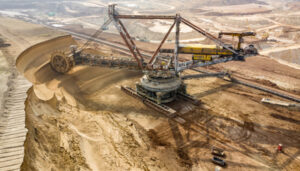
PrJSC United Mining and Chemical Company (UMCC), which has taken over management of Vilnohirsk Mining and Metallurgical Plant (VGMK, Dnipro region) and Irshansk Mining and Processing Plant (IGOK, Zhytomyr region), has resumed mining titanium raw materials and the full operation of the open pits at Irshansk Mining and Processing Plant.
According to the company’s press release on Thursday, this branch was shut down in October 2022. This decision was made due to the lack of contracts for the sale of ilmenite concentrate and, at the same time, significant stocks of finished products in warehouses.
Currently, the management of UMCC has signed a large contract to sell the branch’s products to a strategic North American customer. Accordingly, there is a need to restore the plant’s full capacity.
“Back in April, we gradually started preparing for the full resumption of the branch’s operations, including the full resumption of production. We made all the necessary purchases and carried out as many repairs as possible. Now we have an active contract with an American end user for 70 thousand tons of ilmenite concentrate from Irshansk GOK,” said Yegor Perelygin, acting Chairman of the Board of UMCC.
According to him, another 25-40 thousand tons are currently under discussion. Additionally, the company is preparing to start negotiations for 30 thousand tons for a European end user, with a shipment plan for the fourth quarter of this year.
“Since we have almost sold the old stocks in our warehouses, which is good news, the resumption of quarrying is critical,” said Perelygin.
He specified that the company plans to produce 12 thousand tons of ilmenite concentrate per month by the end of this year.
“We understand that if there is an opportunity to increase production, we will definitely press the gas pedal. But there are several barriers and negative factors that constantly make adjustments to our production program. Everyone is well aware that we are in the active stage of the war and need to prepare for surprises or unplanned problems. In particular, it concerns the stabilization of electricity supplies to the plant,” added the CEO.
He also explained that UMCC has come a long way to qualify IGOK’s ilmenite concentrate for the North American market, and it is strategically important for the company to maintain this momentum until 2025, as then we can talk about long-term contracts and long-term product qualification.
“My personal dream is that 2/3 of IGOK’s products should be exported to the market that is strategic for us as a country and that our cooperation with the American chemical industry should only strengthen and the volumes should grow. This will allow us to move to planning horizons of 1-3 years, even during the war, and will have a good stabilizing effect,” Perelygin explained.
According to him, this will also allow us to move to a broader development of the local resource base, in particular by returning to the implementation of the capital investment program.
“Unfortunately, due to the lack of long-term money and a large number of unpredictable events, the last two years have been practically on hold,” summarized the acting chairman of the board of UMGC.
United Mining and Chemical Company started its actual operations in August 2014, when the Ukrainian government decided to transfer the property complexes of Vilnohirsk Mining and Metallurgical Plant (VGMK, Dnipropetrovska oblast) and Irshansk Mining and Processing Plant (IGOK, Zhytomyrska oblast) to its management. On December 8, 2016, the state-owned enterprise was transformed into PJSC UMCC, and on December 26, 2018, it was transformed from PJSC to PrJSC.
UMCC used to sell its products to more than 30 countries. The main sales markets were the EU, China, Turkey, as well as the USA and African countries.